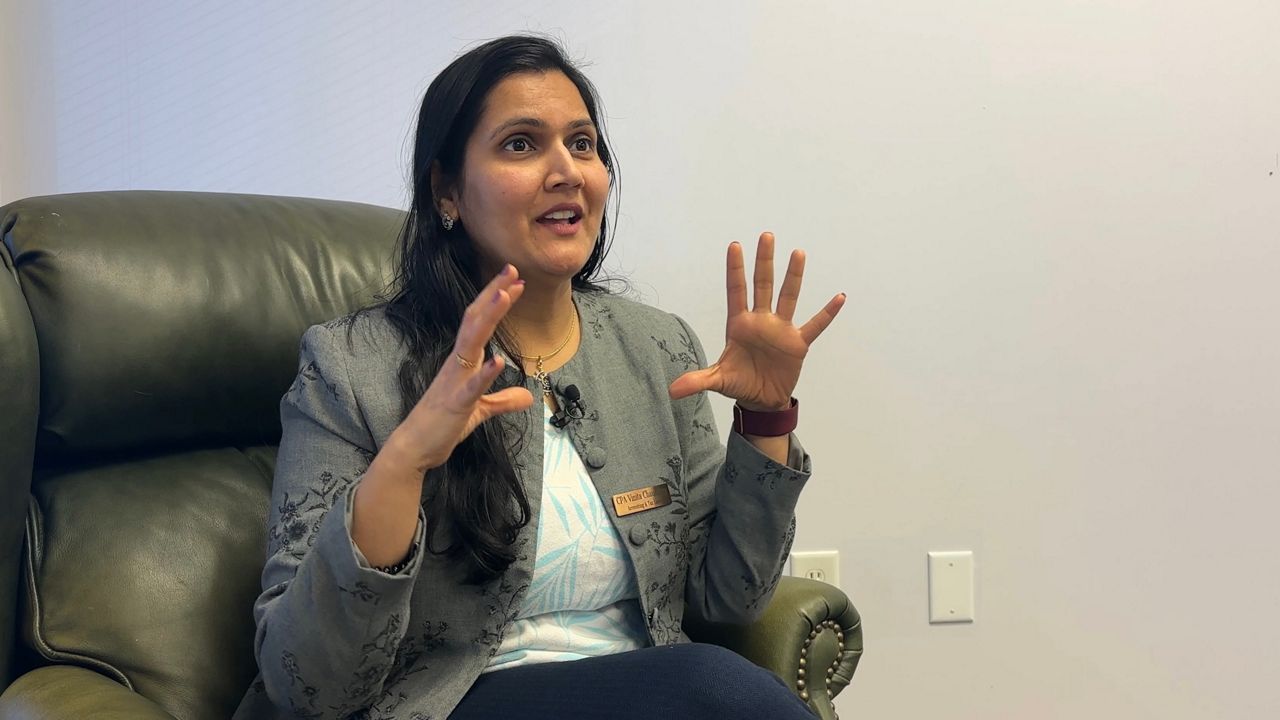RALEIGH, N.C. — There’s still a lot of talk about President Joe Biden’s plan to wipe out significant amounts of student loan debt for tens of millions of Americans.
Biden announced a plan to forgive up to $20,000 in federal loan debt for most borrowers while also extending the repayment freeze.
Raleigh financial expert Alex Sutherland from LifePlan Group explained what this means for borrowers and how to maximize the opportunity.
Q: Who will qualify for loan forgiveness?
- In August, President Joe Biden announced his student loan forgiveness plan. Americans with an annual income of $125,000 or less would have $10,000 in federal student loans forgiven.
- Those with a Pell Grant, which are typically given to low-income students, would have $20,000 of debt canceled.
- This proposal comes after months of debate about how to solve the student loan crisis.
- Over 40 million Americans are struggling under the pressure of student loan debt, collectively owing $1.7 trillion for their education.
- Those with student loan debt often have to delay major financial decisions, like buying a home or saving for retirement.
- Student loans aren’t just a young person’s problem. Older Americans are taking on student loan debt even faster than their younger counterparts. 2.4 million Americans age 62 and older owe $98 billion in student loans.
Q: How much will student loan forgiveness cost?
- One economic study estimates that forgiving $10,000 per borrower would eliminate $321 billion in student loan debt.
- Depending how the details of the program are carried out, the proposed student loan forgiveness plan would cost the government over $400 billion.
- During Biden’s time in office, existing forgiveness programs have already canceled about $32 billion in student debt.
Q: When will the repayment freeze end?
- Loan payments were set to resume for millions of borrowers after Aug. 31. However, Biden has extended the repayment freeze through Dec. 31.
- While the freeze is still in place, those in the repayment phase of their loan are not required to make regular payments and their balance will not accrue interest during this time.
- The freeze only applies to federal loans, which account for 92% of all outstanding student debt.
- When payments begin again, the Education Department has proposed a maximum payment of 5% of a borrower’s discretionary income, reduced from the current 10% maximum, which applies to any borrowers using an income-driven repayment plan.
- Under these new regulations, borrowers making regular monthly payments toward their student loans will have their unpaid monthly interest waived.
Q: Should borrowers still be making payments during the freeze?
- Biden has signaled that this will be the final extension, which means borrowers should prepare to resume their payments at the beginning of 2023.
- It’s important to plan ahead and use smart financial strategies to make sure you don’t fall behind when repayment begins.
Prepare for repayment
- If you are able, keep making your student loan payments. If you get in the habit now, you can prepare your budget so you won’t be caught off guard when payments resume.
- You don’t want to be hit with a late payment fee, or worse, go into default. You can set up an automatic withdrawal to avoid missing a payment. Many servicers will give you a small interest rate break for setting up autopay.
- If you are struggling financially, consider taking advantage of the freeze.
- A calculator can help you get a realistic idea of how much student loan debt you’re taking on and how long it’ll take to pay off.
Build your savings
- It’s tempting to avoid saving money for the sake of paying off your loans, but grads will regret it later on.
- Saving early — even if it’s just a small amount — is crucial because it allows money to grow through compounding interest.
- We recommend saving at least 10% of your salary in your employer-sponsored 401(k) plan. If you can’t manage that, consider contributing at least enough to get the company match.
- Hopefully, student loan forgiveness will give you a head start on becoming debt-free. Once you reach that milestone goal, make sure to increase your savings toward retirement.









